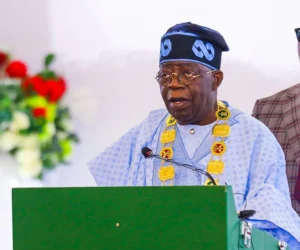Nigeria generated N20.6 trillion in revenue between January and August, boosted by record non-oil collections that now account for three out of every four naira the government earns.
The presidency disclosed this in a statement signed by Bayo Onanuga, special adviser to the president (Information and Strategy) on Wednesday.
According to the presidency, the haul was up 40.5 per cent from N14.6 trillion in the same period last year and marks the country’s strongest fiscal performance in recent history. It credited reforms aimed at tightening compliance, broadening the tax base and digitising collections.
President Bola Tinubu, addressing a delegation of the Buhari Organisation led by Tanko Al-Makura on Tuesday, cited the revenue surge as proof that reforms are taking hold.
The presidency said the government is no longer borrowing from local banks this year, a shift Mr Tinubu attributed to stronger inflows. At the same time, the president acknowledged that revenue is not yet enough to meet his spending ambitions in education, health and infrastructure.
Non-oil receipts totalled N15.7 trillion in the first eight months, while oil revenues lagged amid weaker global crude prices. Customs outperformed, collecting N3.68 trillion in the first half of the year, N390 billion above target and already 56 per cent of the full-year goal.
Revenues have translated into record allocations to Nigeria’s 36 states and 774 local governments. In July, monthly disbursements from the Federation Account surpassed N2 trillion for the first time, giving subnational governments greater fiscal space to invest in food security, infrastructure and social programmes.
READ ALSO: 90% of Nigerians still lack health insurance coverage- NHIA Boss
“Nigeria’s fiscal foundations are being reshaped. For the first time in decades, oil is no longer the dominant driver of government revenue. The combination of reforms, compliance, and digitisation powers a more resilient economy. The task ahead is to ensure that these gains are felt in the lives of our citizens and in better schools, hospitals, roads, and jobs,” it said.
While inflation and exchange-rate revaluation contributed to the rise, it said the uplift is mainly reform-driven, citing customs automation, tighter enforcement and digitised filings. The presidency stressed that collections are running ahead of target and will be validated by the Budget Office at year-end.
Nigeria, Africa’s most populous nation, has long depended on oil for government income.
The reported figures point to a gradual move away from oil dependence, though the challenge remains to turn rising revenues into real relief for Nigerians struggling with high inflation and poor household incomes.










